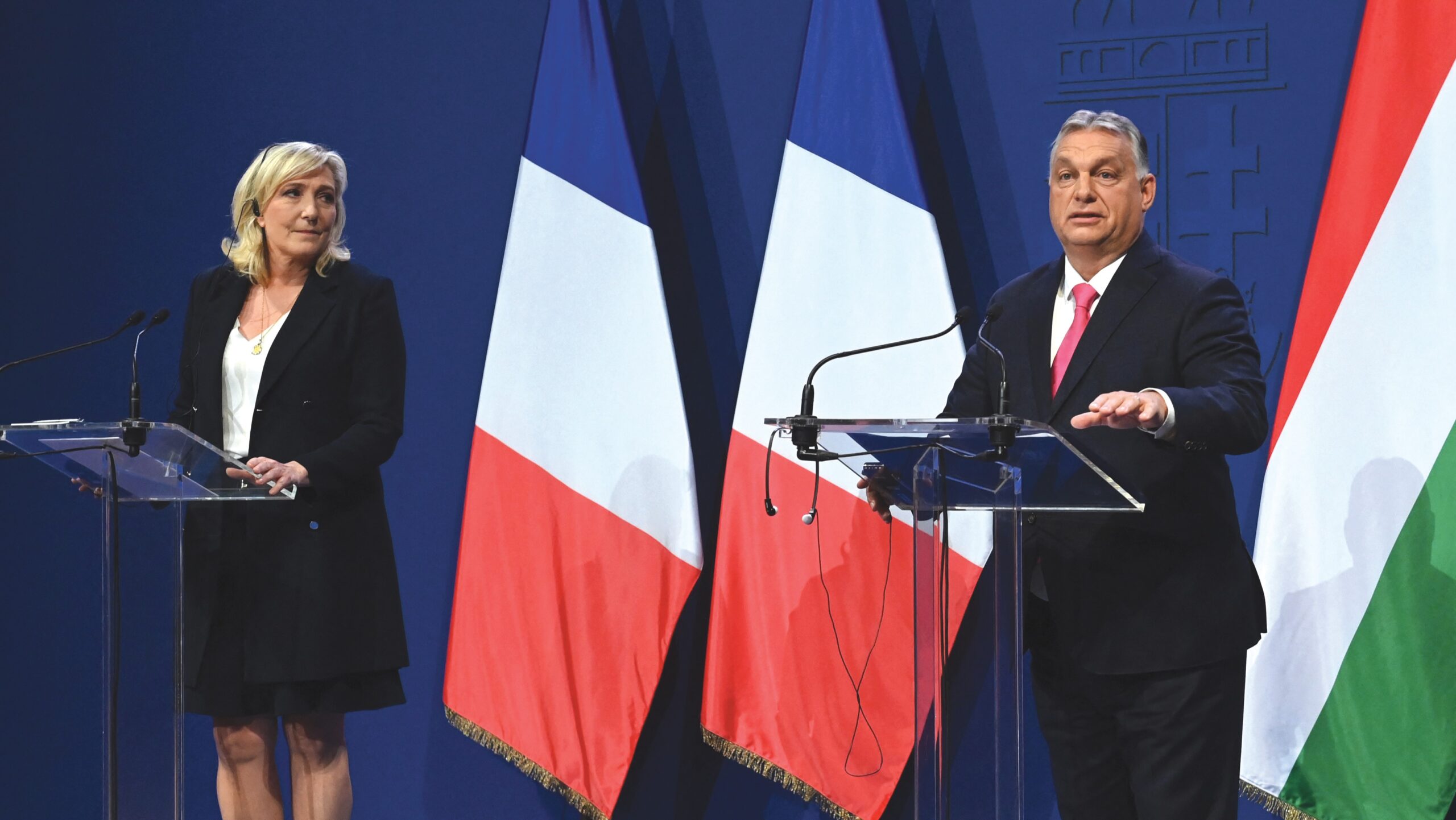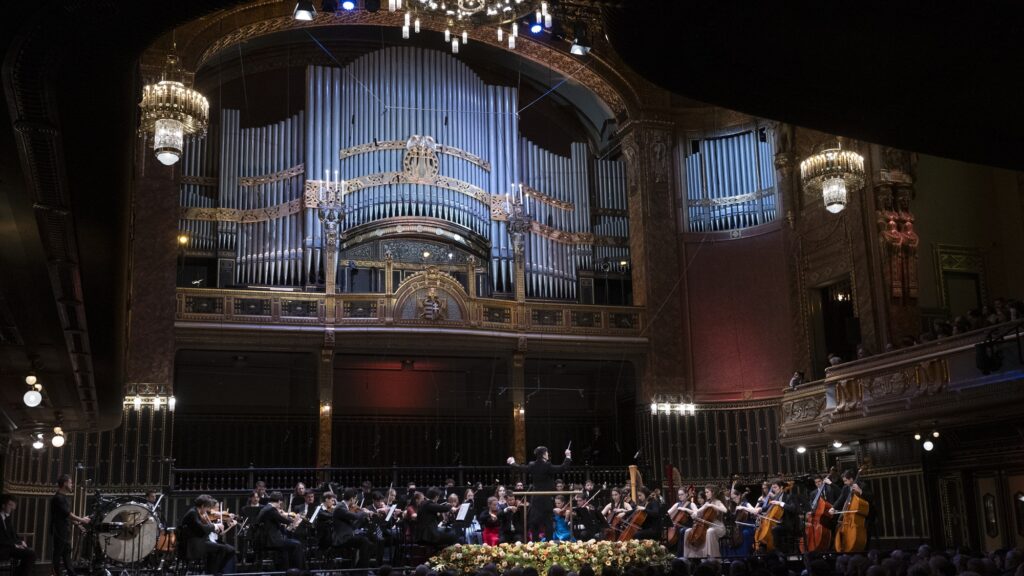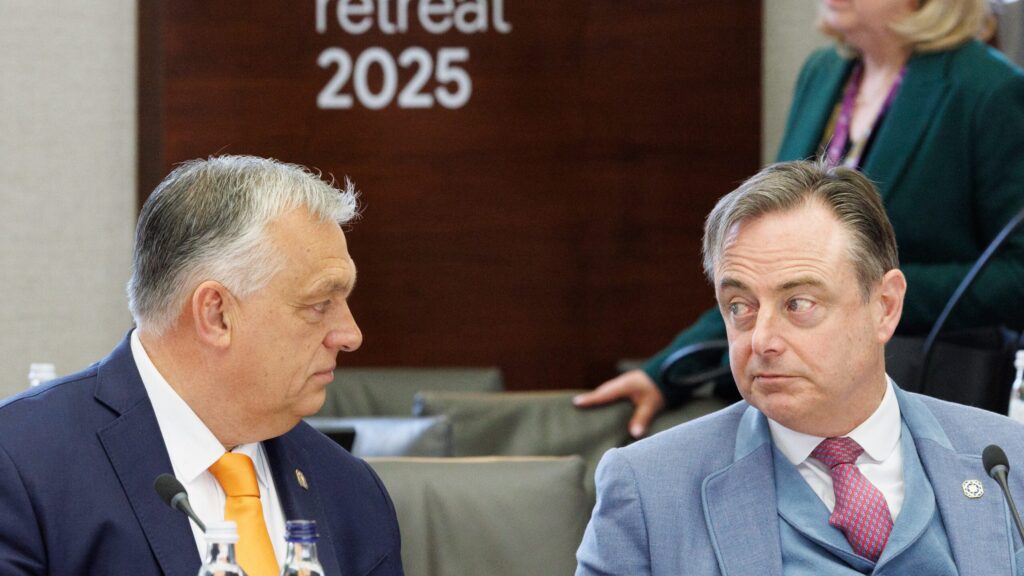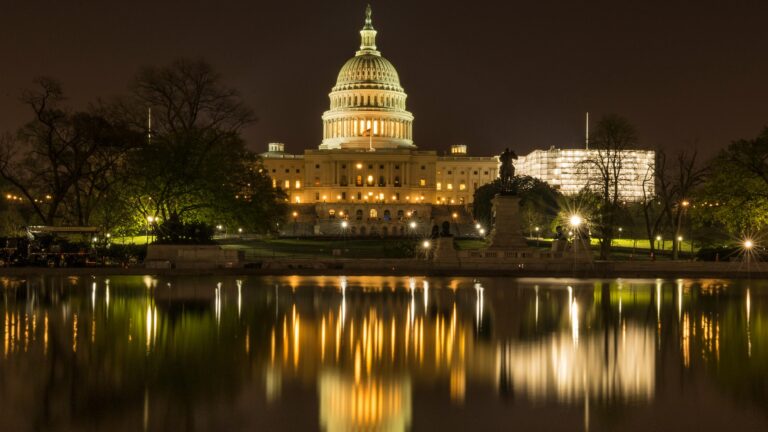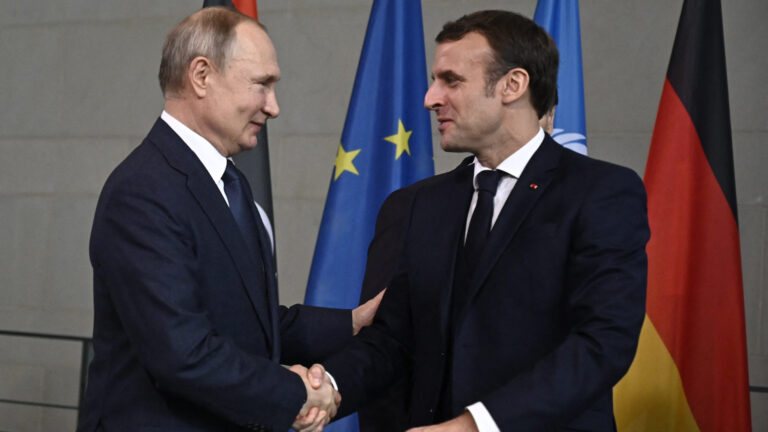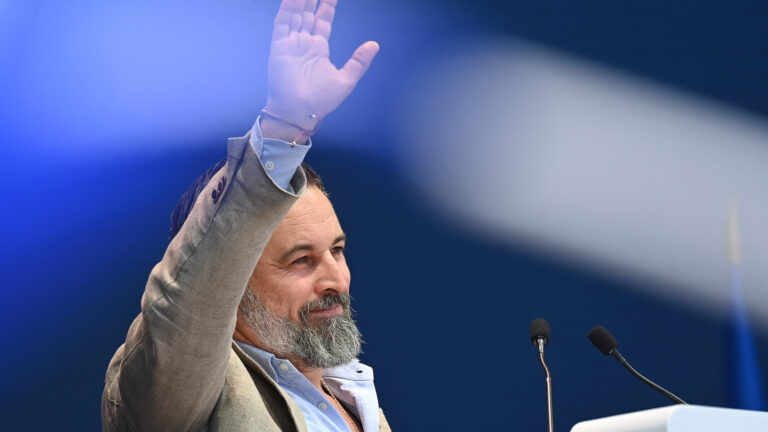This article was published in Vol. 4 No. 3 of our print edition.
The 2024 European Parliament elections may gain historical significance not because of the results, but because of their consequences. It has been reported that the balance of power in the European Union’s special co-legislative body has shifted to the right, but it is also now known that the People’s Party, social democrat, and liberal mainstream has, with 401 MEPs, once again won a majority in the European Parliament (requiring at least 361 seats). In fact, the Brussels Grand Coalition even has reserves, with full support from the Greens (53 seats) and occasional cooperation from some members of the Conservatives. The question of where power lies in the European Parliament seems to be settled for the next five years, as indicated by the re-election of Ursula von der Leyen. This, however, does not mean stagnation, as tectonic movements are underway in the European party system.
Since the beginnings of European integration, the Christian and Social Democrats, followed by the People’s Party, social democrats, and liberals, have controlled the directly elected European Parliament and its predecessor, the indirectly elected European Parliamentary Assembly. This leadership by the parties unanimously in favour of European federalism, however, was not won in a fierce struggle against a real internal alternative, but more against the external, Communist system. The parties of the Brussels Grand Coalition have been in dominant positions for a long time, with only the internal proportion for each party changing from election to election, and their political rivals are divided and lag far behind. This is precisely how the EU’s party system has looked for decades. Parties critical of excessive Brussels power are divided and at odds with each other, and appear rebellious, dangerous, and extremist in a political context determined by the dominant parties.
Even at the beginning of 2024, the distribution of power seemed unlikely to change. While a mood of protest1 against the Brussels Grand Coalition was growing, as evidenced by the farmers’ blockade in the EU capital, change seemed more like wishful thinking than a realistic scenario. The main reason for this was the failure of any real European political alternative to emerge. For individual parties in member states dissatisfied with the functioning of the EU, there was no pan-European alternative but only national parties and intellectual circles discussing the importance of establishing one. It was telling that throughout the campaign the threat of the emergence of a new political force was discussed more frequently among the dominant parties than among parties which could have formed this alternative. Critics of a political change in Brussels portrayed a potential new party alliance offering a European alternative as seeking an alternative to Europe, one that is anti-democratic, pro-Putin, and even working to leave or to destroy the EU. However, with the formation of the Patriots for Europe Party2 (hereafter Patriots) after the elections, the situation changed radically. The opposition and probably the European alternative to the Brussels Grand Coalition was established. This analysis describes the process and prospects of this change.
The Role of Hungary’s Fidesz Party
The Patriots would not have come into being without Fidesz and its leader, Viktor Orbán. European parties critical of Brussels had existed before under the name Identity and Democracy (hereafter ID) or European Conservatives and Reformists (hereafter Conservatives). Reforming the party system was, however, entirely Viktor Orbán’s strategy.
The Hungarian prime minister and president of Fidesz has been preparing for this for a long time. His goal has always been to influence politics in Brussels. In 2000, during his first government, his anti-communist party switched from a liberal international to a catch-all strategy pursuing similar policies to those of the European People’s Party (hereafter EPP) at the behest of the doyen of European politics at the time, Helmut Kohl, as Viktor Orbán likes to emphasize in public speeches. The change of party families can also be interpreted as a power move. In the EU, at that time still governed by a coalition of the moderate left and right, the Hungarian governing party sought to become a power factor, as one of the forces shaping Europe’s future. It sought to encourage the old member states not to reshape the EU to Hungary’s detriment during the period leading up to the country’s expected accession in 2004. From then on until 2010, Viktor Orbán was also a vice president of the EPP.
In 2010, Orbán returned to government with a constitutional majority, albeit in the midst of a political and economic crisis. He used his mandate to reshape the Hungarian constitutional, political, and economic systems, a process during which his party-political allies became increasingly critical of him. The story of the slow decoupling between the EPP and Fidesz is difficult to pin down to a single event, but the relationship between the German and Hungarian heads of government certainly played an important role. The unquestionable informal leader of the EPP at the time was German Chancellor Angela Merkel, who, fearing the widening of the Greek crisis, rejected Orbán’s 2010 request for a temporary exemption for Hungary from meeting the budget deficit target. Their famous debate on migration in 2015 was, therefore, not without precedent. However, the break between Fidesz and the EPP took a decade to fully unfold, and it was only on 18 March 2021 that the Hungarian governing party left the largest European party, while its permanent coalition partner, the Hungarian Christian Democratic People’s Party (hereafter KDNP), remained a member of the EPP for another three years, serving as a link.
Fidesz spent these three years searching for its place in the European party system. It was essentially offered four scenarios, the first of which would have been permanent independence, i.e. the inability to cooperate with others, but that would hardly have helped a European alternative to develop and prevail. The Slovak left-wing party Smer, having been expelled from the Socialists and Democrats party family, is currently going through the same experience. The reality and potential impact of the other three scenarios remained in question for a long time, right up until the 2024 EP elections. It was conceivable that Fidesz might join the Conservatives or ID, i.e. Italian Prime Minister Giorgia Meloni or repeated French presidential candidate Marine Le Pen’s platforms, but there was also much speculation about the creation of a new European party based on cooperation between Le Pen and Meloni.
In keeping with the concept of expectation management familiar from political communication, Orbán has never announced a plan that would have looked like a personal failure had it not been fulfilled. He did say during the 2024 election campaign that his party would be happy to join the Conservatives if they were to unite the political forces offering a European alternative. In line with this, following the elections, he called for a coalition of his two potential European allies, Meloni and Le Pen, stating that this was timely.3 Orbán maintains good personal and political relations with both, as evidenced by bilateral meetings, but he has so far failed to formulate a common strategy acceptable to both.
Le Pen has done her utmost to strengthen her ability to cooperate, and from the beginning of 2024, in a series of steps, the ID party family, which she dominated, cut ties on 23 May with the German anti-establishment Alternative for Germany (AfD) Party. As the AfD entertained ideas of Dexit at the start of the EP campaign, it can be classified as a party seeking an alternative to Europe rather than offering a European alternative and is, therefore, unlikely to be a partner for parties formulating a European alternative.
Meloni was in a more difficult position because of a disagreement within the Conservatives. The identity of the party, founded by the British Conservative Party which later left it, is unclear. The party includes economic and cultural conservatives, those who would like to be part of the Brussels Grand Coalition and those who reject it. Meloni understandably wanted to hold together her fragmented faction after the election, and a strategic choice of cooperation with parties critical of excessive power in Brussels could have threatened it. So, she was not ready immediately after the EP elections to cooperate with Marine Le Pen and together establish a new European party.
In this situation, it was a rational choice for Fidesz to opt for the fourth scenario and start organizing a new party without the cooperation of the ‘two ladies’ as Orbán stated. If the Hungarian governing party entered ID, it could have closed the door to future cooperation between Le Pen, Meloni, and Orbán.
Organizing the Patriots
In retrospect, setting up a new European party is not as unexpected a step as it might seem to the daily news consumer. Already in the spring of 2021, after Fidesz left the EPP, a meeting took place in Budapest between Viktor Orbán, Mateusz Morawiecki, and Matteo Salvini, at a time when two of them were prime minister and one a deputy prime minister, and they agreed on the need for a ‘European renaissance’ based on Christian principles.4 The first meeting was followed by a second in Warsaw, where they signed a joint statement (Statement on the Future of Europe), which would go on to be signed by sixteen European parties in total.5
In November 2021, Orbán again held talks with Salvini and Morawiecki on the creation of a new European party.6 The efforts were thwarted by the Russian invasion of Ukraine: though the partners shared a common assessment of the situation, condemning the Russian invasion, they offered different strategies when it came to how to respond. Thus, in the last EP cycle, the founding of a new party was left off the agenda and the tradition of tripartite meetings did not continue.
Symbolic steps towards cooperation can, however, be identified, such as when, on 16 April 2024, the mayor of Brussels banned the National Conservative Conference (NatCon) in his city. In defence of freedom of expression, Morawiecki, Meloni—who had in the meantime become the right-wing prime minister of Italy—and Orbán were once again on the same platform. This event, with justified accusations of abuse of power in Brussels, has become one of the founding myths of the new party.7
It was clear that following the EP elections in June 2024 events could take on a new dynamic, as political groups would have to be formed before the first new European Parliament session on 16 July. This imperative has prompted some actors to clarify their future strategy. Events accelerated after Meloni decided that her party did not intend to join a new European party in the summer of 2024.
We have already mentioned Meloni’s difficulty with the Conservatives because of its internal disagreements. The individual and party strategy of the Italian prime minister deserves further attention, as her relationship with the Patriots could be decisive for their future importance and influence. Both her critics and her supporters have speculated as to whether Meloni will join forces with Le Pen or Orbán. Since she has never categorically ruled this out, it is only reasonable to conclude that she has no plans to form a joint party for the time being. Meloni could have several reasons for her decision. On the one hand, there are domestic political reasons. Cooperation with Orbán would provide the Italian left with a platform for an attack in the referendum campaign for constitutional reform expected in the autumn, which aims to secure an automatic parliamentary majority for the winner and to strengthen the status of the head of government. Moreover, such a move could also threaten the three-party governing coalition of Italy if Forza Italia, which remains Berlusconi’s legacy but is increasingly critical of Orbán, tries to seek cooperation with the Italian left. Beyond this, Meloni’s reason for postponing the alliance may also be that Italy could be put at a disadvantage in the European post-election distribution of posts and EU resource allocation should Meloni ally with the opponents of the Brussels Grand Coalition. Finally, geopolitical reasons could also play an important role in keeping a distance between Meloni and Orbán, but the election of Donald Trump as US president could bring divergent positions on the US, Russia, and Ukraine back towards a common platform.
On 30 June in Vienna, Viktor Orbán, former Czech Prime Minister Andrej Babiš, the leader of ANO, outgoing member of the liberal Renew faction, and former Austrian Interior Minister Herbert Kickl, the leader of the Austrian Freedom Party (FPÖ), founded the Patriots. One week later, on 8 July, the formal inaugural meeting of the group saw 84 MEPs or 11.7 per cent of the Parliament joining the new group, thus fulfilling the objective set at the time of its creation. The Patriots are indeed the third largest political group in Brussels. The quick formation surprised the Patriots’ political opponents, who even in the first days of July were still publicly speculating whether a ‘completely isolated’ Orbán could form a parliamentary group in the EP at all. It turns out that he can, thus proving the narrative of isolation unfounded.
‘Only five years from now will it be clear whether the founding of the Patriots was simply an interesting story, or history in the making’
Although the president of the French National Rally, Jordan Bardella, has become the leader of the Patriots faction, and the leading force of the French opposition has almost three times as many MEPs as the Hungarian government parties, it is no exaggeration to say that the most important and best-known founder of the party alliance is Orbán. This is not only the image but also the reality of the Patriots. The extent of its growth and success will also depend on Orbán’s political success in Europe. After all, there will hardly be any members wanting to join the party and the parliamentary group who cannot imagine working with the Hungarian prime minister.
Critics were also quick to express the view that the new faction was in fact a rebranded version of ID. While it is true that most of ID’s member parties now support the Patriots, the suggestion that it is merely a ‘change of name’ is an oversimplification of reality. It is important when examining this thesis to note that not all ID member parties have switched over to the Patriots, with the expelled AfD and the Czech SPD having instead joined the sovereigntist party alliance. But even the post-electoral representation of the former ID member parties (56 seats), excluding AfD and SPD, is only two-thirds of the Patriots (84 seats). The other Patriot member parties come from a broad spectrum. Babiš’s formerly liberal ANO has already been mentioned, but there is also formerly independent Fidesz and KDNP, a member of the EPP until 2024, and the Spanish Vox, which has joined the Patriots from the Conservatives.
Nevertheless, the situation in the summer of 2024 is not yet final. The organizing process of the Patriots obviously keeps running. Law and Justice, the former governing party of Poland, has thought long and hard about changing parties, and Meloni herself has not become an opponent of the Patriots. After Ursula von der Leyen’s re-election by the European Parliament on 18 July, it emerged that members of Meloni’s and Morawiecki’s parties had voted against von der Leyen, together with the Patriots, while the Conservative ODS leader and Czech Prime Minister Petr Fiala openly campaigned for the old and new Commission president.8 This foreshadows a possible strategic split among the Conservatives and a further strengthening of the Patriots by some currently Conservative member parties. If the Patriots can add 53 MEPs to the current 84 (Morawiecki’s and Meloni’s parties make up 44 seats combined), they could indeed become the second largest group in the European Parliament.
A New European People’s Party
The Hungarian prime minister and perhaps most prominent founder of the Patriots, as we have shown, received valuable advice from German Chancellor Helmut Kohl on governing the country. Kohl’s party political strategy was based on the people’s party principle. Not only did he chair the German CDU for a quarter of a century that held together the liberal (Rita Süssmuth), social (Norbert Blühm) and national-conservative (Alfred Dregger) wings as a people’s party, but he also became a committed advocate of the EPP’s change of strategy in the 1990s. It was thanks to him and party president Wilfried Martens that some Scandinavian parties, Silvio Berlusconi’s Forza Italia, and the formerly liberal Hungarian Fidesz joined the EPP. This also meant pragmatic and non-ideological political action. People’s parties seek common ground between members or member organizations rather than divisive issues. Their documents are always inclusive and are never ideologically motivated. This situation requires respected leaders because the management of necessary compromises is based on personal charisma rather than ideology or bureaucracy. The aim of the people’s parties is to maintain as much political influence as possible through a broad coalition of non-hostile parties and in society. This is how the EPP has been operating since the 1990s, until recently as the largest party in the European Parliament, and has been able to provide the presidents of the European Commission over the past twenty years.9
This pragmatism is also well reflected in the wording of the Patriotic Manifesto, which can be seen as a kind of founding document of the Patriots. In the light of this, the other member parties joined within a week. The Manifesto10 takes a stand against European federalism (a ‘European central state’), in favour of border protection and a halt to illegal migration, and it frames Europe as the competitive ‘continent of excellence and progress’. These elements are not divisive but rather integrative among political parties seeking a European alternative, and the close reading of the text may provide each member with elements particularly relevant to them. Fidesz, having run its entire EP campaign on the trinity of ‘no war, no migration, no gender’, is also able to highlight several details for itself. The equivalent of ‘no war’ is the phrase ‘We believe in a Europe that is…committed to peace and dialogue’. The equivalent of ‘no migration’ has already been mentioned, but ‘preserving cultural identity’ may be particularly important for the Hungarian governing party in relation to migration. Finally, although ‘no gender’ does not appear explicitly in the Manifesto, as it was probably considered divisive by the founders, the wording that the Patriots strongly oppose any attempt to restrict or reinterpret ‘genuine freedoms’ may certainly be acceptable to Orbán’s party, since it still captures the essence of the anti-gender or anti-Woke campaign. The plan behind the integrative text of the Patriotic Manifesto is seemingly that the Patriots shall become a new European people’s party. And the Patriots as a people’s party do not want to become an alternative or even an enemy to EPP, but far more a political competitor and a new potential partner to it.
From a Dominant to a Two-Party System in Europe
In recent decades, the EU has been characterized by the dominance of the Brussels Grand Coalition, or, in political science terms, by a dominant party system in which the dominant player was this stable coalition. Although the grand coalition’s composition and programme have changed over time, it has never included parties sceptical about deeper integration. The Patriots’ people’s party strategy is an attempt to respond to this situation. It does not require much imagination from the observer to realize that the Patriots aim to create a new political pole to replace the dominant party system with a genuine two-party system allowing for alternating political power in the European Parliament. The European reality is that in this two-party system, the EPP, not as a minor but as a relevant member, might be able to form a coalition with both sides.
The new planned pole is difficult to name, as there are still many points of contention among potential partners. However, since we are not yet talking about an independent majority but new potential partners for the EPP, it would be no exaggeration to use the term ‘new right’ to describe this pole under construction. At the same time, the two-party system is more of a strategic plan for the new EP term between 2024 and 2029 than a forthcoming development for the near future. Indeed, the fragmentation of the new right is unlikely to disappear any time soon. We have already discussed why Meloni’s party has been left out of the Patriots’ camp, but there exist further internal and external reasons for the potentially slow expansion. It is not simply a lack of interest or reservations about other nations, traditionally described as the impossibility of an ‘internationale of nationalists’. The emergence of a ‘new right’ pole is made difficult by more concrete political reasons. Above all by the fact that in some countries, cooperation would be required between parties that are in fierce competition. A good example is the Czech Republic, where the conservative ODS Party and the patriotic ANO, the leading force in the previous government, are irreconcilably at odds.
On the other hand, external influences also complicate the creation of poles. Beneficiaries of the dominant party system, the parties of the Brussels Grand Coalition, are doing their utmost to prevent the emergence of a new right and to divide the parties potentially involved in the new pole. A good example of this is the distribution of posts within the European Parliament, where the Conservatives have had two vice-presidencies while the larger group of the Patriots has received none. But the quarantine can only be deemed by its supporters as a good decision at first glance. The unfair procedure indirectly strengthens the Patriots by providing powerful evidence for the narrative that their opponents are prone to abuse power and that their vocal commitment to the rule of law is not genuine.11
Challenges Ahead for the Patriots
As we have already indicated, despite the people’s party strategy, the Patriots’ pole creation will not be a quick or easy process. However, in its thirty-six-year history, Fidesz has accomplished such tasks before. From a marginally tolerated Hungarian youth organization critical of the communist regime in 1988, it first became a political party (1989), then a parliamentary force following the first free elections (1990), later a competitor (1994) and successor (1998) to the post-communist government coalition, and finally, after losing and regaining power, it became a member of the governing coalition with a constitutional majority, and the main player in the Hungarian party system (since 2010). The Patriots, however, must overcome serious obstacles to gain ground and rise in a Fidesz-like fashion.
First, it is worth drawing attention to the national-level obstacles. The National Rally’s defeat in the French elections to the National Assembly shows that without the support or at least acceptance of the social majority it is not possible to pursue a successful national policy that will have a decisive impact in Europe. This and the blocking Geert Wilders from government calls attention to the need to strengthen national coalition building. Fidesz, which can appeal to most Hungarians with its political messages, may serve as a model in both areas.
The second big challenge for the Patriots is the ‘German question’. Since Germany, with its voting power of over 18 per cent and its economic strength, is a dominant member of the EU, neither the Patriots nor the new right pole can succeed without a German member party or coalition partner, even if some Patriots member parties are unafraid of uttering criticism in its direction. As the CDU is the leading force of the EPP, and the regime-critical AfD, expelled from ID, has also founded a new European party, there is no German party that could be considered as a member of the new right pole. Two possible solutions to this problem are imaginable. A split between the moderate and radical wings of the AfD could offer a chance of finding a German member party which stands for a European alternative and not for an alternative to Europe, but at this stage, this is more fantasy than reality. Another scenario could be that the Patriots and the new right-wing pole seek cooperation with the German CDU, which could be the basis for cooperation between EPP and the new right pole as well. Although the main political obstacle to this, a partnership between Patriots and AfD, was ruled out by the Patriots, personal tensions between Orbán and EPP’s President Manfred Weber make this scenario unlikely for the time being.12
Lastly, the Patriots’ influence in Europe is also hampered by the fact that they can only delegate one head of government, Orbán, to the European Council where European strategic issues are decided. The emergence of a new right-wing pole would immediately create a different situation, as Meloni would also sit on the European Council as an ally of the Patriots.13 Even without the Council members, however, there are developments in the member states that point to the growing influence of the Patriots among national governments. The return of the FPÖ to government in Vienna later in 2024 is not out of the question, and Le Pen in France has a reasonable hope of being elected president in 2027, i.e. in this EP cycle.
Although the political forces thinking in terms of a European alternative failed to replace the Brussels Grand Coalition in the 2024 EP elections, there is a real chance that they could organize themselves into a new right-wing pole in the next five years, which could bring about a real systemic change in Brussels politics. Only five years from now will it be clear whether the founding of the Patriots was simply an interesting story, or history in the making.
NOTES
1 The ‘Spring 2024’ wave of Eurobarometer (101.1), for example, shows that only 36 per cent of Europeans are satisfied with the way the EU has handled the crisis caused by the Russian invasion of Ukraine, compared to 58 per cent who are not. There was also a relative majority of dissatisfied respondents on migration (43 vs 38 per cent). In addition, 47 per cent of the Europeans said peace was one of the three most important issues the next EP should address. This contrasts with the view of the Brussels Grand Coalition on the conflicts in Ukraine and the Middle East (questions QA8.4 and QA8.5, and QA15ab).
2 Officially the Patriots are still only a parliamentary group, not yet a European political party.
3 ‘Orbán Viktor: “Ha Marine Le Pen és Giorgia Meloni megegyeznek, megvan a jobboldali fordulat Európában”’ (Viktor Orbán: ‘If Marine Le Pen and Giorgia Meloni can reach an agreement, there will be a right-wing turn in Europe’), Hiradó.hu (14 June 2024), https://hirado.hu/kulfold/cikk/2024/06/14/orban-viktor-ha-marine-le-pen-es-giorgia-meloni-megegyeznek-megvan-a-jobboldali-fordulat- europaban.
4 ‘Orbán, Salvini and Morawiecki Form New Right- wing European Alliance’, Euronews.com (1 April 2021), www.euronews.com/my-europe/2021/04/01/orban-salvini-and-morawiecki-form-new-right-wing-european-alliance.
5 Beata Szydło commented as follows: ‘Today, the leaders of European center-right parties signed a joint declaration. We are all faithful to the principles upon which the EU was built. Together, we will defend a Europe of nations against dangerous experiments and the destruction of European values’, Twitter (now X) (2 July 2021), https://x.com/BeataSzydlo/status/1410964201682710535/photo/1.
6 ‘PM Orbán Holds Talks with Salvini and Morawiecki on New Political Group’, Abouthungary.hu (4 November 2021), https://abouthungary.hu/news-in-brief/pm-orban-holds-talks-with-salvini-and-morawiecki-on-new-political-group.
7 The leaders of the various parties have nevertheless developed close personal ties, as can be seen in the unusually long late-night discussion between the Hungarian and Italian prime ministers on 1 February of the election year, the campaign launch of Spanish Vox on 20 May with Argentine President Javier Milei, Marine Le Pen in person, and Giorgia Meloni and Viktor Orbán via digital presence, or the now traditional CPAC conferences in Budapest.
8 ‘Czech PM: “I can help von der Leyen get a 2nd Commission term”’, Politico (9 July 2024), www.politico.eu/article/czech-prime-minister-petr-fiala-ursula-von-der-leyen-european-commission-president-right-wing-european-conservatives-and-reformists/.
9 The EPP has currently 82 member parties from 43 countries in Europe. See: www.epp.eu/parties-and-partners.
10 ‘Patriots Manifesto for Europe, 4 July 2024’, AALEP.eu (4 July 2024), www.aalep.eu/patriot’s-manifesto-europe.
11 It should be noted that in Hungary’s Parliament, which has been subject to rule of law reviews for years, the important Budget and National Security Committees have traditionally been headed by opposition members, despite the constitutional majority of Fidesz and its Christian Democrat coalition partner.
12 According to Article 11 of the Statutes & Internal Regulations of the EPP, ‘the members of the Presidency are elected by the Congress by secret ballot and by separate vote, for a renewable term of three years’. Since Manfred Weber was first elected as president of EPP from 31 May 2022, in 2025 and in 2028 elections for EPP’s president and thus a strategic choice for the EPP are necessary. See: www.epp.eu/files/uploads/2015/09/EPP-Statute_EN.pdf.
13 In such a situation, Prime Minister Petr Fiala from ODS would probably leave the Conservatives and would not enter the new right-wing pole.
Related articles:

